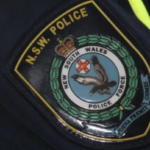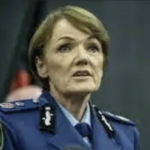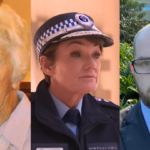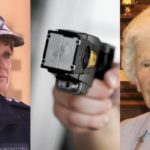NSW Police Officer Found Guilty of Manslaughter Over Killing of Great-Grandmother
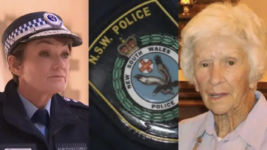
34-year old New South Wales police officer, Kristian White, has been found guilty of manslaughter by a jury in the Supreme Court of New South Wales for discharging his taser and thereby causing the death of 95-year-old Clare Nowland at an aged care facility in Cooma in May 2023.
The senior constable has now been suspended from the New South Wales Police Force without pay (he was until now suspended with pay) and will be sentenced in February 2024.
The court will determine tomorrow whether Mr White will remain on bail or be remanded in custody while he awaits his sentencing proceedings.
The events
Police were called to Yallambee Lodge over reports the great-grandmother, who was suffering from dementia and in a walker at the time, was wandering around the facility holding a kitchen knife.
When White arrived with another officer, he took it upon himself to aggressively confront the disoriented elderly woman rather than attempt to de-escalate the situation or disarm her without the use of a weapon.
White deployed his taser into Mrs Nowland, causing her to collapse and hit her head on the floor, causing bleeding and brain swelling.
The great-grandmother succumbed to her injuries in hospital a week later.
Police Force Refuses to Take Responsibility
Shortly after the incident, New South Wales Police Commissioner Karen Webb made clear she had not viewed the footage and saw no need to do so. Nor did she express concern over the tragic events.
Instead, the state’s top cop attempted to divert media questions regarding the response – which is inconsistent with her eagerness to face the media and speak in detail about incidents whereby police are alleged to have been attacked or put in difficult situations.
The Commissioner went so far as to later attempt to influence the composition of the State Coroners’ office as it was looking into the cause of the great-grandmother’s death.
In the wake of White’s conviction, the NSW Police Force is backtracking and has issued an apology to the victim’s family, adding that the Force does not condone his actions.
However, Ms Webb added that she was confident in the level of training provided to police when dealing with such situations, claiming that current taser policy and training are ‘appropriate’.
This response makes clear the Force has not taken full responsibility over the manslaughter, and that it intends to do very little, if anything, to ensure there is no reoccurrence.
Lack of Mental Health Training
Police officers might not know the appropriate steps and protocol for diagnosing and understanding a person with a pre-existing mental health condition when called to a scene. Police Commissioner Webb has made statements in the past backing her officers, stating that the role of police has gotten ‘wider’—indicating that the scope of the police force requires them to deal with more complex cases than they may have training for.
That brings into question whether their training is adequate to cover a wide range of cases and crises, such as the mental health of older adults in compromised situations. One example is the case of Todd McKenzie, a man from Taree who NSW Police shot in July 2019 after suffering from a schizophrenic episode.
The increase in the number of incidents of officers using deadly force against those with mental health conditions shines a glaring light on the omission of mental health training in the NSW Police Force.
Taser Use
Another concern regarding this case that has shone its ugly head in prior instances includes using tasers by the NSW Police Force in instances where this level of force might be unnecessary.
The Law Enforcement Conduct Commission found that there were 16 incidents of tasers used in 210 incidents in one year. Even more concerning is that in five years, NSW Police officers drew their tasers 3000 times and used their taser in 1000 cases involving a person with a mental health issue. The prevalence of force or intimidation by drawing the taser indicates that the police officers might not know how to diffuse a situation and result in using violence, or threat of violence, to ‘calm down’ a subject.
Another incidence of excessive taser use was on 14 September 2023 when police forcefully gained entrance to an apartment and tasered a woman who was having a mental health crisis. Later, the woman died at the John Hunter Hospital as a result of the injuries caused by the police.
The prevalence of these incidents and the growing ‘normalness’ of using a taser to mediate a situation has raised alarm bells in the public. The Australian public and NSW residents have asked questions regarding the procedures of using ‘non-lethal weapons’ while acting as first responders for incidents of those who are having a mental health crisis.
The only current system of checks and balances regarding the use of force to diffuse a situation includes ‘critical incident investigations’, which analyse the incidents involving an NSW police officer that result in severe injury or death of a person. However, the NSW Police are in charge of the investigation — indicating how they can possibly go through loopholes or skip steps to protect themselves.
Lastly, the NSW Police tries to make the case for tasers being ‘non-lethal’ weapons — but, as we can see, the previous cases, especially ones that have occurred in the last couple of years, indicate that tasers are extremely dangerous, especially for those with pre-existing conditions.
Tasers are classified as ‘prohibited weapons’ under schedule 1 of the Weapons Prohibition Act 1998, with unauthorised use classified as an offence under section 7 of the Act and carries a maximum term of 14 years imprisonment. However, police do not need a permit to use a prohibited weapon, and the police force has its policy regarding taser use. But, most concerning, these policies might lack the accountability and seriousness required to deal with high-pressure situations safely.
Better and More Extensive Training is Needed
The tragic killing of Mrs Nowland and the nonchalant attitude of the state’s top police officer is cause for concern.
It is clear there is a dire need for better and more extensive training when it comes to responding to those suffering from mental health conditions and episodes.
But with a Force that rarely faces consequences and the police watchdog, the Law Enforcement Conduct Commission, being chronically under-resourced and having no power to discipline let alone charge police officers with criminal offences, the very real fear is that such tragedies will continue happening.

